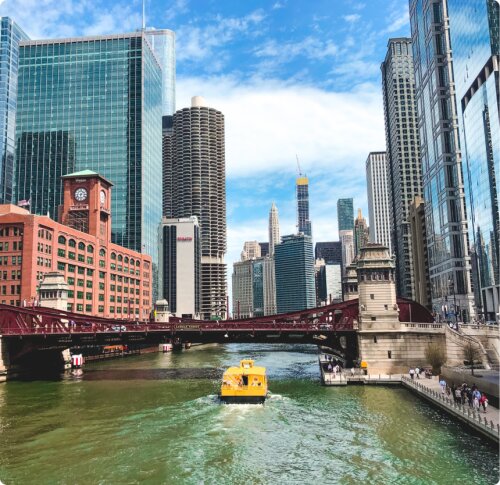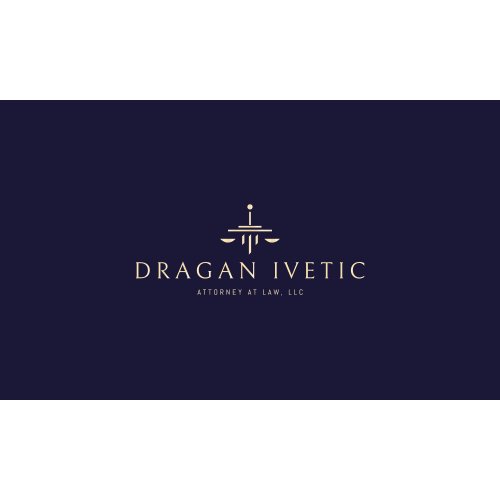Best Natural Resources Lawyers in Illinois
Share your needs with us, get contacted by law firms.
Free. Takes 2 min.
Or refine your search by selecting a city:
List of the best lawyers in Illinois, United States
About Natural Resources Law in Illinois, United States
Natural resources law in Illinois governs the use, management, protection, and conservation of the state’s land, water, air, minerals, forests, wildlife, and other natural assets. Illinois features a wide range of resources, from fertile soil and rivers like the Illinois and Mississippi, to coal, oil, and natural gas deposits, and rich biodiversity. State and federal laws work together to regulate how these resources are accessed, used, and maintained for both public and private interests. Laws are in place to address issues such as environmental protection, land use, resource extraction, water rights, agriculture, endangered species, and public recreation.
Why You May Need a Lawyer
There are many scenarios where you might need a legal professional specializing in natural resources law in Illinois. Some of the most common situations include:
- Disputes over mineral or water rights on private land
- Navigating the regulatory requirements for resource extraction or land development
- Filing permits for activities such as mining, drilling, logging, or water diversion
- Compliance with environmental laws and regulations, such as the Illinois Environmental Protection Act
- Litigation involving pollution, contamination, or environmental damage
- Buying, selling, or leasing property with natural resource assets
- Enforcement actions from governmental bodies like the Illinois Department of Natural Resources
- Neighboring land disputes regarding shared resources or boundaries
- Handling endangered species or protected habitats found on private or commercial land
Local Laws Overview
In Illinois, several key laws directly impact the use and management of natural resources:
- Illinois Environmental Protection Act: Sets standards for pollution control, waste management, and the protection of air, water, and land.
- Illinois Oil and Gas Act: Regulates drilling, permitting, and operation of oil and gas wells to ensure safe extraction and minimal environmental impact.
- Illinois Surface Mining Conservation and Reclamation Act: Oversees the extraction of coal and other minerals, focusing on land restoration and environmental mitigation post-mining.
- Water Use Act of 1983: Governs surface and groundwater withdrawals, prioritizing sustainable use, and resolving conflicts over water allocation.
- Endangered Species Protection Act: Protects endangered and threatened species and their habitats within Illinois.
- Timber Buying and Marketing Act: Manages buying and selling of timber to protect both landowners and forest ecosystems.
- Regulations for hunting, fishing, and wildlife conservation: Set by the Illinois Department of Natural Resources, which also oversees parks and public lands.
Additionally, local zoning laws and federal regulations, such as those under the Clean Water Act or Clean Air Act, may apply to certain projects or land uses.
Frequently Asked Questions
What are mineral rights, and how do they affect land ownership in Illinois?
Mineral rights are the legal rights to extract minerals like coal, oil, or gas beneath a parcel of land. In Illinois, these rights can be sold or leased separately from the surface rights, which can lead to situations where one party owns the land and another owns the minerals beneath it.
Who regulates oil and gas drilling in Illinois?
The Illinois Department of Natural Resources, Office of Oil and Gas Resource Management, regulates the permitting, drilling, and operation of oil and gas wells in the state.
How are water rights determined in Illinois?
Illinois uses the reasonable use doctrine for groundwater and riparian rights for surface water. This means water must be used reasonably and cannot unreasonably harm other landowners.
What do I need to do before starting mining operations on my property?
You must obtain the necessary permits from the Illinois Department of Natural Resources and comply with environmental and land reclamation laws. Consultation with an attorney is highly recommended.
Can I be held responsible for environmental contamination on my land?
Yes, landowners may be held liable for existing or historic contamination under state or federal law, even if the pollution predates their ownership, depending on the circumstances.
How do I handle a dispute with my neighbor about a shared natural resource?
Disputes over resources such as water or timber are common. Illinois law provides mechanisms for negotiation, mediation, and, if necessary, court actions to resolve such conflicts.
Are there special protections for endangered species on private land?
Yes, Illinois law protects endangered and threatened species, even on private property. Certain activities, such as development, may be restricted if they impact protected habitats.
Do I need a permit for recreational activities on public lands?
Most recreational activities, such as hunting, fishing, or camping on public lands, require valid licenses or permits issued by the Illinois Department of Natural Resources.
What should I know about buying land with natural resources?
Purchasers should conduct due diligence, including checking mineral rights, environmental evaluations, and existing leases or encumbrances. Legal counsel can help identify potential issues and ensure a smooth transaction.
How do I report an environmental violation in Illinois?
Violations such as illegal dumping or pollution can be reported to the Illinois Environmental Protection Agency or the Illinois Department of Natural Resources. These agencies will investigate and enforce compliance.
Additional Resources
If you require further information, support, or wish to report concerns related to natural resources in Illinois, consider reaching out to the following authorities and organizations:
- Illinois Department of Natural Resources
- Illinois Environmental Protection Agency
- Illinois State Bar Association - Environmental and Natural Resources Law Section
- County and municipal zoning departments
- U.S. Environmental Protection Agency (for federal concerns)
- Local university extension offices offering natural resources legal clinics or expertise
Next Steps
If you believe you need legal assistance regarding natural resources in Illinois, consider the following steps:
- Identify the specific nature of your legal issue, whether it involves property transactions, resource extraction, regulatory compliance, or a potential dispute.
- Gather all relevant documents, such as property deeds, permits, environmental assessments, or correspondence with government agencies.
- Contact an attorney or legal aid service that specializes in Illinois natural resources or environmental law. The Illinois State Bar Association can provide referrals.
- Ask about the attorney’s experience with similar cases, expected costs, and the projected timeline for resolving your issue.
- Consider reaching out to governmental agencies directly for advice or to clarify regulations before proceeding with certain actions.
Early and informed legal guidance will help you navigate complex regulations, protect your rights, and prevent costly disputes or penalties related to Illinois’s valuable and diverse natural resources.
Lawzana helps you find the best lawyers and law firms in Illinois through a curated and pre-screened list of qualified legal professionals. Our platform offers rankings and detailed profiles of attorneys and law firms, allowing you to compare based on practice areas, including Natural Resources, experience, and client feedback.
Each profile includes a description of the firm's areas of practice, client reviews, team members and partners, year of establishment, spoken languages, office locations, contact information, social media presence, and any published articles or resources. Most firms on our platform speak English and are experienced in both local and international legal matters.
Get a quote from top-rated law firms in Illinois, United States — quickly, securely, and without unnecessary hassle.
Disclaimer:
The information provided on this page is for general informational purposes only and does not constitute legal advice. While we strive to ensure the accuracy and relevance of the content, legal information may change over time, and interpretations of the law can vary. You should always consult with a qualified legal professional for advice specific to your situation.
We disclaim all liability for actions taken or not taken based on the content of this page. If you believe any information is incorrect or outdated, please contact us, and we will review and update it where appropriate.
Browse natural resources law firms by city in Illinois
Refine your search by selecting a city.












